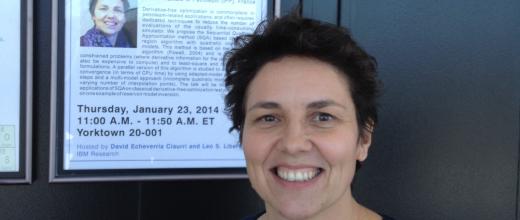A large number of simulators, whether they relate to the design of reaction processes, the evolution of oil reservoirs or combustion systems, require access to thermodynamic properties. In order to provide these properties, IFPEN has been developing a library of calculation modules, called “Carnot”, named after the famous French thermodynamics expert. These calculations, in particular those concerning phase equilibrium (also known as flash calculations), generally require the use of substantial calculation resources due to the complexity of the systems considered, and represent in many cases the most time-consuming step in the simulation process.








